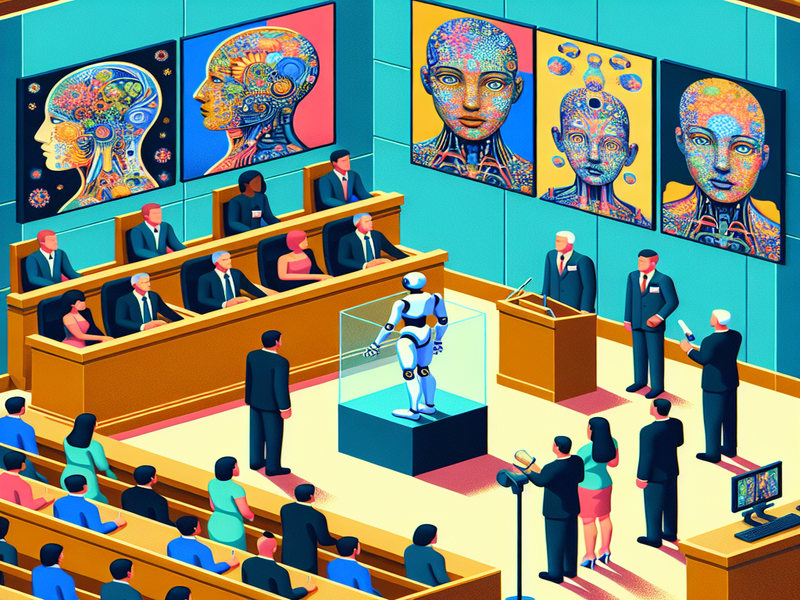- Updated: March 27, 2025
- 3 min read
OpenAI’s Viral Studio Ghibli Moment Highlights AI Copyright Concerns
AI and Copyright: Navigating the Legal Labyrinth with OpenAI’s New Image Generator
In the rapidly evolving world of artificial intelligence, the intersection of AI and copyright law is becoming increasingly complex. As AI technologies advance, they raise new questions about the ownership and use of creative works. One of the latest developments in this field is OpenAI’s new image generator, which has sparked significant discussion and debate regarding copyright concerns.
OpenAI’s New Image Generator: A Groundbreaking Innovation
OpenAI has recently unveiled a new image generator that leverages cutting-edge AI technology to create stunning visuals. This tool has the capability to generate images that mimic the style of renowned artists and studios, such as Studio Ghibli. The release of this generator has taken the internet by storm, with users creating and sharing AI-generated images across various platforms.

Impact of AI-Generated Content on Copyright Law
The advent of AI-generated content poses significant challenges to existing copyright laws. Traditionally, copyright laws are designed to protect the rights of human creators. However, when AI systems produce creative works, it becomes unclear who holds the copyright. This legal ambiguity is further complicated by the fact that AI systems often rely on copyrighted materials for training purposes, raising questions about fair use and infringement.
The OpenAI Q-Star breakthrough and concerns highlight the complexities involved in balancing innovation with legal compliance.
Legal Challenges Faced by AI Companies
AI companies, including OpenAI, are navigating a legal landscape fraught with challenges. One of the primary concerns is the potential for copyright infringement, as AI systems may inadvertently replicate or derive works from copyrighted materials. This issue is not unique to OpenAI; other major players in the tech industry, such as Google, are also grappling with similar legal challenges.
Moreover, AI companies must contend with the ethical implications of their technologies. The use of AI-generated content raises questions about the authenticity and originality of creative works, as well as the potential for AI to replace human artists and creators. These concerns are echoed in discussions about the AI in stock market trading, where the role of AI in potentially disrupting traditional industries is a key consideration.
Conclusion and Future Outlook
As AI continues to transform the creative landscape, the need for clear and comprehensive copyright laws becomes increasingly urgent. Policymakers, legal experts, and AI developers must collaborate to establish guidelines that protect the rights of creators while fostering innovation. The future of AI and copyright will likely involve ongoing debates and legal battles, but it also presents an opportunity to redefine the boundaries of creativity and ownership.
For businesses looking to integrate AI solutions, understanding these legal nuances is crucial. Platforms like UBOS offer a wealth of resources and tools to help businesses navigate the complexities of AI integration. From ChatGPT and Telegram integration to Enterprise AI platform by UBOS, these solutions can help businesses harness the power of AI while staying compliant with legal standards.
In conclusion, the relationship between AI and copyright is a dynamic and evolving field. As AI technologies continue to advance, so too must our understanding of the legal and ethical implications. By staying informed and proactive, businesses and individuals can successfully navigate this complex landscape and unlock the full potential of AI.
